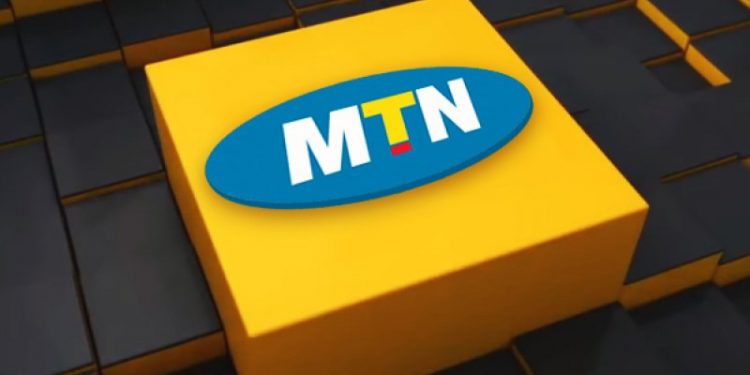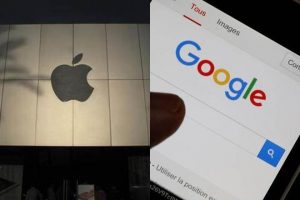Ghanaian enterprises institutions and households could have access to 5G internet services as early as 2023. The Chief Executive Officer (CEO) of MTN Ghana, Selorm Adadevoh, has revealed that MTN Group is partnering with Vodafone, Google, and Facebook to bring 5G internet connectivity into the country.
According to the MTN boss, the move is expected to happen by 2023.facilitated through the completion of the 2Africa Submarine Cable Project.
However, industry analysts are questioning the veracity of the claim on the basis that the National Communications Authority, which regulates the telecommunications industry in Ghana has not announced a regulatory framework for the development and operation of 5G networks in the country. This is crucial; it should be recalled that initially, the offering of 4G services were restricted to only indigenous service providers. Indeed foreign firms require a special dispensation from the regulator to offer 4G services up to now.
MTN Ghana, the first foreign enterprise licensed to offer 4G services was only allowed to do so on the condition that it sell some part of its shareholding through the Ghana Stock Exchange, thereby allowing Ghanaians to benefit from the resultant financial profitability of the 4G offering. Vodafone has since been allowed into the market too, ostensibly because it already has some level of indigenous participation, it’s having originally been a state owned enterprise.
It is yet unknown whether the companies partnering to introduce 5G services to Ghana have a framework agreed with the NCA and government itself.
Actually this is not the first time that a plan for introducing 5G technology has been announced in Ghana. Communications Minister, Ursula Owusu-Ekuful as far back as 2019 revealed that the country is in partnership with Nokia to begin trials for introducing the ultra-fast 5G network. Nothing has been heard about this initiative since then.
However, the Minister also stated that “the trial is not limited to Nokia however as the government will also partner with other multinational telecommunications, information technology, and consumer electronics companies in Ghana.”
This creates the possibility that the new initiative involving MTN and Vodafone has the support of government, although the Ministry has not made any further statement on the initiative since it was revealed.
5G is the fifth generation technology standard for broadband cellular networks which cellular phone companies began deploying worldwide in 2019, and is the planned successor to the 4G networks which provide connectivity to most current cellphones. 5G networks are predicted to have more than 1.7 billion subscribers worldwide by 2025, according to the GSM Association/ like its predecessors, 5G networks are cellular networks in which the service area is divided into small geographical areas called cells. All 5G wireless devices in a cell are connected to the Internet and telephone network by radio waves through a local antenna in the cell. The main advantage of the new networks is that they will have greater bandwidth, giving higher download speeds, eventually up to 10 gigabits per second (Gbit/s).]
Due to the increased bandwidth, it is expected the networks will increasingly be used as general internet service providers for laptops and desktop computers, competing with existing ISPs such as cable internet, and also will make possible new applications in internet of things (IoT) and machine to machine areas. 4G cellphones are not able to use the new networks, which require 5G enabled wireless devices.
The MTN Ghana boss made the disclosure about the impending development of 5G services at the maiden edition of the Ghana Diaspora Investment Summit on Wednesday, June 23.
“We recognize our responsibility as an African based telecommunication service provider to support the ever increasing demand for internet services and have invested in partnership with several other players being Google, Facebook and Vodafone in the 2Africa submarine cable project which we hope to land in Ghana in 2023.”
“The project boasts a length of 37km of fibre and optical fibre for the 2Africa submarine cable which will link up Western Europe with the Middle East and through 16 African countries including Ghana.”
“This forms part of MTN Group’s efforts to facilitate a healthy internet ecosystem by enabling additional internet capacity and faster internet speed at lower cost with the deployment of technology such as 4G and 5G for the benefit of millions of Ghanaians and businesses,” he averred.
The 2Africa is one of the largest subsea cable projects in the world and will interconnect 23 countries in Africa, the Middle East, and Europe.
At 37,000 kilometers long, 2Africa will be nearly equal to the circumference of the Earth. It will provide nearly three times the total network capacity of all the subsea cables serving Africa today.
When completed, this new route will deliver much-needed internet capacity, redundancy, and reliability across Africa; supplement a rapidly increasing demand for capacity in the Middle East; and support further growth of 4G, 5G, and broadband access for hundreds of millions of people.
The National Communications Authority (NCA) itself has not made any comment on the planned initiative although it is known to encourage the introduction of 5G technology. Instructively when early last year it issued a press release defending the technology when unfounded rumours were making the rounds linking it with sickness among users it also praised the benefits of the technology asserting that:
” The First Generation (1G) wireless mobile technology was analogue which was launched in Ghana in March 1991. It enabled customers to make voice calls on a hand-held telephone while on the move, an improvement over stationary telephone sets. It was soon followed by Second Generation (2G) digital mobile technology which, in addition to voice calls, enabled Text Messaging (SMS) and a very limited amount of data to be sent over the Internet although it was rather slow. Further innovations led to the introduction of Third Generation (3G) mobile technology enabling mobile Internet access and browsing, and transmission of images and videos at substantial speeds to facilitate messaging, video calling, and mobile television.
Fourth generation (4G) came with even faster internet data speeds to improve the consumer experience. Operators in Ghana continue to expand access to both 3G and 4G technology. The fifth generation (5G) is the next generation of mobile technology which has not yet been deployed in Ghana. However, it promises significantly higher internet data speeds which will enable innovative products and services in agriculture, transportation, education, health, security, and commerce.”







